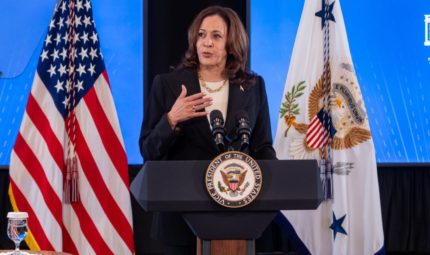Vice President Kamala Harris has introduced a revolutionary proposal to provide an expanded child tax credit of up to $6,000 for families with newborn children. This unprecedented initiative, unveiled during a speech in North Carolina, aims to significantly alleviate the financial strain on families during the crucial first year of a child’s life. The proposal forms a cornerstone of Kamala Harris’s comprehensive economic policy platform, demonstrating a commitment to addressing the real-world challenges faced by American families.
The scale and ambition of this proposal mark a pivotal moment in U.S. social policy. By offering substantial financial support during a child’s earliest days, Kamala Harris’s plan acknowledges the critical importance of early childhood development and the economic pressures that often accompany new parenthood. This move could potentially reshape the landscape of family support in America, setting a new standard for government assistance to families.
Contrasting Approaches: Action vs. Rhetoric
Kamala Harris’s bold proposal stands in stark contrast to the approach often attributed to her political opponents. While Republicans have frequently been accused of merely paying lip service to family values, Kamala Harris’s plan represents a tangible commitment to supporting families through concrete financial assistance. This action-oriented approach could potentially shift the narrative around family support in American politics.
By “putting her money where her mouth is,” Harris demonstrates a pragmatic approach to policymaking that prioritizes real-world outcomes over political rhetoric. This strategy could resonate strongly with voters who are seeking substantive solutions to the economic challenges of raising a family in today’s America. The contrast between Harris’s proactive proposal and the perceived inaction of her opponents may become a key point of discussion in upcoming political debates.
Reviving the Child Tax Credit: Building on Past Success
In addition to the new $6,000 credit for newborns, the Harris campaign has announced plans to restore the temporary child tax credit enacted by the American Rescue Plan in 2021. This previous measure, which provided up to $3,600 per child, was credited with reducing child poverty by nearly half during its implementation. By reviving and expanding upon this successful initiative, Kamala Harris aims to build on proven strategies for supporting families and reducing child poverty.
The decision to resurrect this policy demonstrates a commitment to evidence-based policymaking. By looking to past successes and seeking to improve upon them, Kamala Harris’s proposal suggests a thoughtful and iterative approach to addressing complex social issues. This strategy of building on what works could potentially increase the likelihood of the proposal’s success if implemented.
A Holistic Approach to Economic Empowerment
Kamala Harris’s economic policy platform, of which the expanded child tax credit is a key component, reflects a comprehensive approach to empowerment. By recognizing families as the cornerstone of society and providing critical support during a child’s early years, Kamala Harris seeks to create a more stable foundation for future success. This holistic strategy addresses not only immediate financial needs but also long-term societal benefits.
The potential impact of this approach extends beyond individual families. By investing in the wellbeing of children and alleviating financial stress on parents, Kamala Harris’s proposal could contribute to broader economic stability and growth. This forward-thinking strategy aligns with economic theories that emphasize the importance of human capital development in driving long-term prosperity.
Targeting Child Poverty: A Central Policy Goal
At the heart of Kamala Harris’s proposal is a commitment to reducing child poverty. The expanded child tax credit of up to $6,000 represents a significant investment in this goal, aiming to make a tangible difference in the lives of families struggling to make ends meet. This focus on child poverty reduction reflects a broader commitment to creating a more equitable society and addressing systemic inequalities.
By prioritizing the needs of children and families, Kamala Harris’s proposal aligns with a growing body of research highlighting the long-term societal benefits of reducing child poverty. From improved educational outcomes to better health in adulthood, the potential positive impacts of this policy could resonate for generations, potentially transforming the social and economic landscape of the nation.
Redefining Government Support for Families
Kamala Harris’s proposal signals a potential shift in how the government approaches family support. By acknowledging the immense value of caregiving and the challenges associated with raising a family, this plan sets a new standard for leadership in family policy. It represents a move towards a more supportive and empathetic approach to governance, one that recognizes the diverse needs of modern American families.
If implemented, this proposal could mark the beginning of a new era in which family support is seen as a core function of government rather than a peripheral concern. This shift in priorities could have far-reaching implications for social policy, potentially inspiring further initiatives aimed at supporting families and promoting child welfare. As the proposal moves forward, it is likely to spark significant debate and discussion about the role of government in supporting families and shaping the future of the nation.














